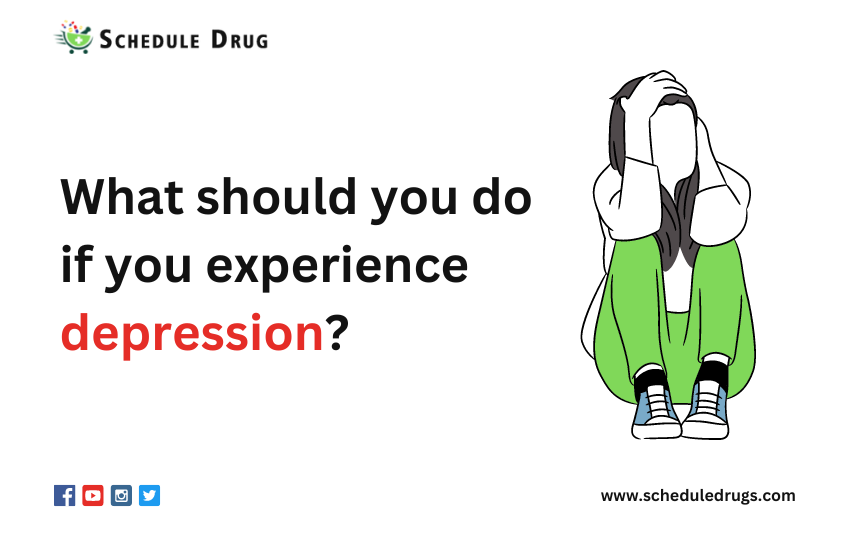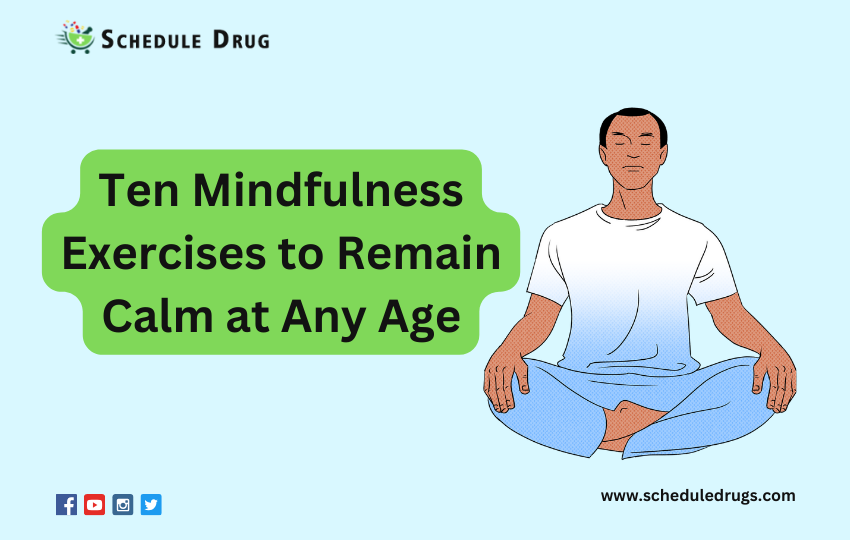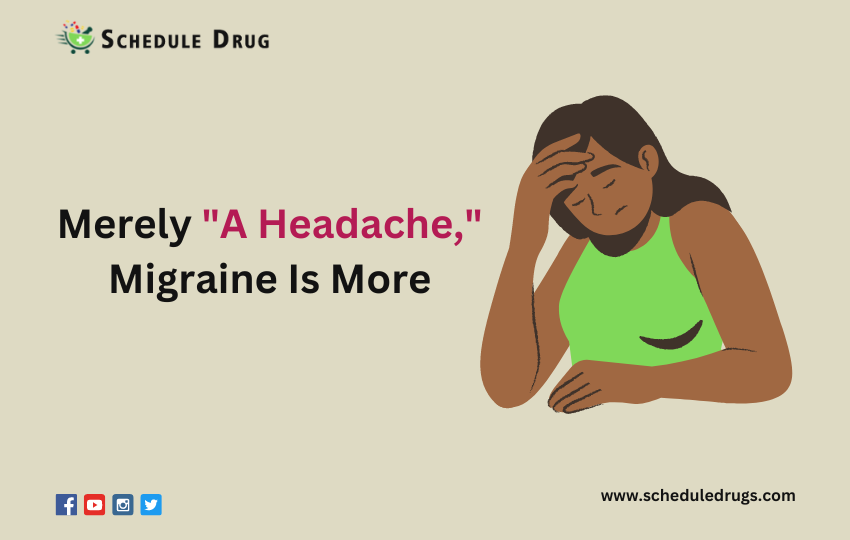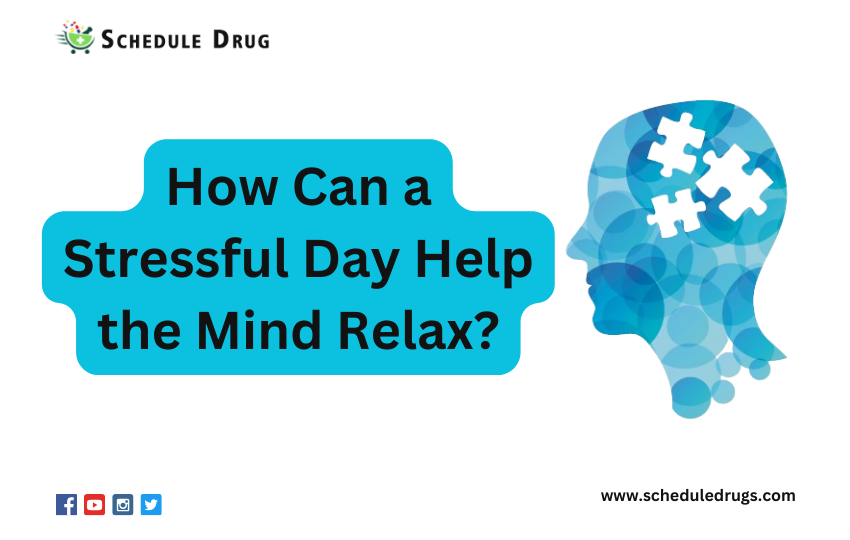What to do when you suffer from depression?
Depression can drain your energy, leaving you exhausted and feeling empty. It can make it challenging to muster your strength and desire to seek treatment. However, you can take various small steps to feel in control and improve your overall sense of well-being.
Overview of Depression
Depression is a mental health condition that may cause feelings of sadness, emptiness, and hopelessness. It is one of the most well-known mental health conditions. In fact, about 15 million adults experienced depression in 2014. It is also estimated that about 2 in 100 children and 8 in 100 teens have depression.
It can significantly interfere with routine activity. But there are many other effective treatments available that can help you to manage the symptoms of depression.
Continue reading to learn about the different types of treatment plans and medication available to treat depression. Additionally, you will get to know how to find mental health professionals in your area.
Medicational treatment
Depression drugs are a standard part of treatment. Individuals use medication for a short period, while others use them for a long duration. Your medical professional will consider multiple factors before prescribing any drug, such as:
- your specific symptoms
- cost
- possible drug interactions
- your current health concerns
- its possible side effects
Drugs that are commonly used for treating depression that may include:
Serotonin-norepinephrine reuptake inhibitors or SNRIs
SNRIs are the potent antidepressants, including desvenlafaxine and Duloxetine. SNRIs are believed to help treat depression by keeping up levels of norepinephrine and serotonin. They are the natural chemical messengers in the brain that affects mood.
Natural chemicals do this by discontinuing norepinephrine and serotonin from going back into the cells that released them.
Selective serotonin reuptake inhibitors or SSRIs
SSRIs typically have fewer side effects than other types of antidepressants. Escitalopram, sertraline, and Fluoxetine all belong to this type of antidepressant. This condition is linked to low levels of serotonin (and low levels of norepinephrine, dopamine, or other brain chemicals).
These medicines work by preventing the blood from absorbing some of the serotonin from your brain. It leaves a higher level of serotonin in your brain and increased serotonin that can help to relieve depression.
Tricyclic antidepression
This type of antidepressant allows more norepinephrine and serotonin to stay in the brain, helping elevate mood. They can be very effective but can cause severe side effects. It is often used if you have not responded to other drugs. It includes nortriptyline and imipramine.
Anxiety drugs are sometimes combined with antidepression medications. If you are seeing a therapist who can not prescribe drugs, they can contact a medical professional and request a prescription for you.
Therapies
If you are experiencing signs related to mild to moderate depression, you may get other benefits from therapy with a trusted and professional therapist. Many professionals will try treatment prior to testing drugs. However, if depression is more serious, many will try a combination of medication and therapy.
Cognitive therapy
This therapy aims to determine the negative thoughts and emotions that exacerbate depression. Cognitive therapy helps an individual identify these unhelpful thought patterns and to turn them into more productive ones.
Generally, this therapy is short-term and last between six weeks to four months.
Talk therapy
It involves discussing your problems and how you feel with a professional therapist. They can help you detect patterns of thought and behavior contributing to your depression. You may be given tasks, including journal writing and tracking your moods.
Talk therapy will help you to continue your treatment outside of appointments. Your therapist will also teach you exercises to reduce anxiety and stress and help you understand your illness.
A professional therapist helps you create strategies to identify and avoid any triggers that exacerbate your symptoms. It includes developing coping mechanisms for when you experience these triggers.
Behavioral therapy
It seeks to identify and help to change potentially unhealthy and self-destructive behaviors. It functions on the idea that all behaviors are known, and those unhealthy behaviors can be changed. The focus of this treatment is often on current problems and how to change them.
It generally focuses on helping people engage in activities that help to enhance their feelings of well-being.
Natural remedies
There are various alternative natural remedies that are often used for treating depression. These treatment options should not be used without consulting your medical professional, especially if you are taking good prescription antidepressants and other drugs.
Sometimes natural remedies can help boost your mood and decrease the symptoms of depression. But make sure you check in with your medical professional before adding other supplements and complementary treatment options to your routine.
Reduce stress
When you are stressed out, your body produces more of a hormone known as cortisol. It is a good thing in a short duration because it helps you gear up to cope with whatever is causing you stress.
Over an extended period, it can cause many problems for you, such as depression. The more you try stress-reducing methods, the better you can cope with stress, as it can reduce the risk of becoming depressed.
Good eating habits
Studies are conducted to find a clear relationship between mental health and a good diet. In fact, there has been so much research that has shown that nutrition improvement can help prevent and treat mental illness that nutritional psychiatry is becoming mainstream.
The brain-essential nutrients can help to affect depression. For instance, a study in 2012 found that deficiency of zinc is associated with the symptoms of depression.
Good sleep cycle
Good mood and sleep are intimately related to each other. A study in 2014 found that about 18 percent of individuals with major depressive disorder experience sleep disturbances. But, you may feel like you cannot fall asleep, or perhaps you may struggle to get out of bed as you may feel exhausted.
So, to improve your sleep hygiene turn off electronics and gadgets at least one hour before going to bed. Use dim light to read or engage in other relaxing activities. Only use your bedroom for sleeping or sexual activity. Doing other things in the bedroom can cause you to associate with bed stress rather than relax you.
Good sleep hygiene and cycle can be vital to improving the quantity and quality of your sleep.
Stop negative thoughts
Depression does not just make you feel low but can also cause you to think negatively; changing those thoughts can help improve your mood. To stop thinking negatively, you can try therapies such as cognitive-behavioral therapy. It is a type of mental therapy that alters common patterns of negative thoughts known as cognitive distortions to reduce stress and negative thoughts.
Create a routine
Depression can disrupt your daily routine life. But setting a common goal can help to reduce stress and depression. Establishing a routine can help you to feel in control and productive. But it does not have to map out an entire day.
So, schedule those times when you feel more scattered and disorganized. Your routine schedule should focus on the time before work or right before going to bed.
Do what makes you happy.
The feeling of depression can push you to give in to your fatigue. It may feel more powerful than happy moments. So, try to do something you love that is relaxing, and you become energized. It can be painting, biking, hiking, or playing an instrument.
These activities can give you subtle moods and energy lifts, which can help you overcome your symptoms.
Conclusion
Depression can be one of the most significant challenges of your life. But there are many effective ways and treatment plans available that can help you to manage the symptoms of depression. Depending on the seriousness of your condition, Your treatment may include a combination of drugs, therapies, or other lifestyle changes. But, make sure you talk to your medical professional to determine and choose the best treatment plan for you according to your health and condition.



